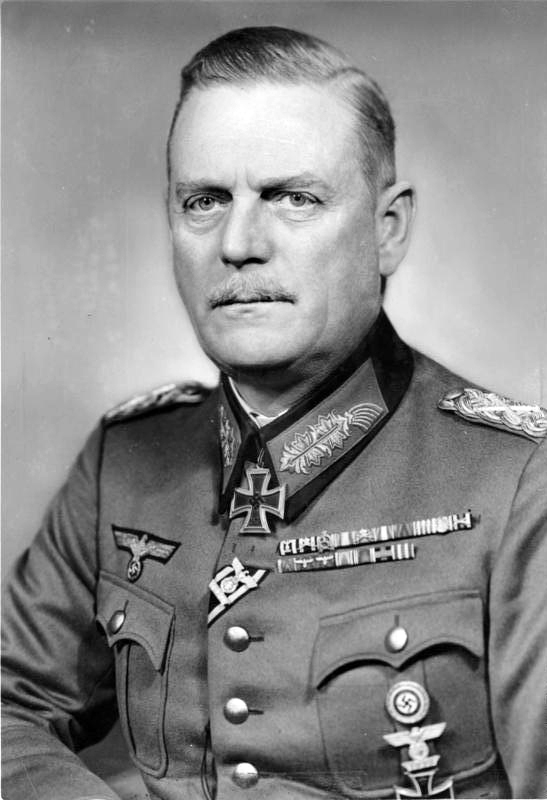Wilhelm Keitel
Wilhelm Keitel was given the death sentence at the Nuremberg Trials for his role in World War Two. He was a senior Nazi general who enjoyed Adolf Hitler’s favour.
Born in 1882, Keitel signed up with the army in 1901 as a Cadet Officer. At the start of World War One, Keitel served in the 46th Artillery Regiment. His arm was severely wounded by a shell fragment in September 1914.
Once he recovered, Keitel joined the German General Staff in 1915. After the war he remained in the army, and in 1924 he was moved to the Reich Defence Ministry to serve in the Troop Office. By the time that Hitler assumed power in January 1933, Keitel had been moved up to head of this department.

In 1935, Keitel was given a promotion to lead the Armed Forces Office, then became a full general in 1937. He was made head of the Supreme Command of the German Armed Forces (OKW) in 1938.
After Germany successfully invaded Poland and Western Europe in 1939-1940, Hitler promoted Keitel to the rank of field-marshal in 1940.
Keitel advised Hitler against ’Operation Barbarossa’, the German invasion of the USSR in 1941. He was certain it would end in failure. Keitel initially seemed to have called it wrong: in the opening phases of the Operation the German army looked unstoppable as it rapidly bulldozed through the USSR. This undermined Keitel’s authority and he tendered his resignation, which Hitler refused. Keitel was regarded as overly submissive to Hitler by some senior commanders. He received the nickname ‘Lakaitel’ which translates as ‘Nodding Ass’.
Stauffenberg readied his bomb in Keitel’s office washroom on 20 July 1944. After the bomb failed to kill Hitler, Keitel was a key figure in the crackdown against plotters.
Keitel committed numerous war crimes during his time as Chief of the OKW. He signed military orders which opposed accepted warfare conventions. One decreed that French Red Army pilots who had been captured were to be shot instead of made Prisoners of War. The Commissar Order (June 1941) ordered the shooting of Russian Communist Party officials; the Night and Fog Decree (December 1941) ordered the ‘disappearance’ of political prisoners and resistance fighters in occupied areas.
On 9 May 1945, Keitel signed the ratified surrender terms for the German Army in Berlin. He was arrested on 13 May and charged on various counts, including crimes against humanity and war crimes. Keitel sat trial at Nuremberg in 1946. His defence centred around the claim (like many others) that he was just following higher orders like ‘any good soldier’. This defence was rejected and Keitel was declared guilty on all charges and sentenced to death by hanging. He was hanged on 16 October 1946. He was the first military leader to be executed under the new concept of international; law - the principle that professional soldiers cannot escape punishment for waging aggressive wars and permitting crimes against humanity with the claim they were dutifully carrying out the orders of superiors.
See also: Ewald von Kleist
MLA Citation/Reference
"Wilhelm Keitel". HistoryLearning.com. 2026. Web.
